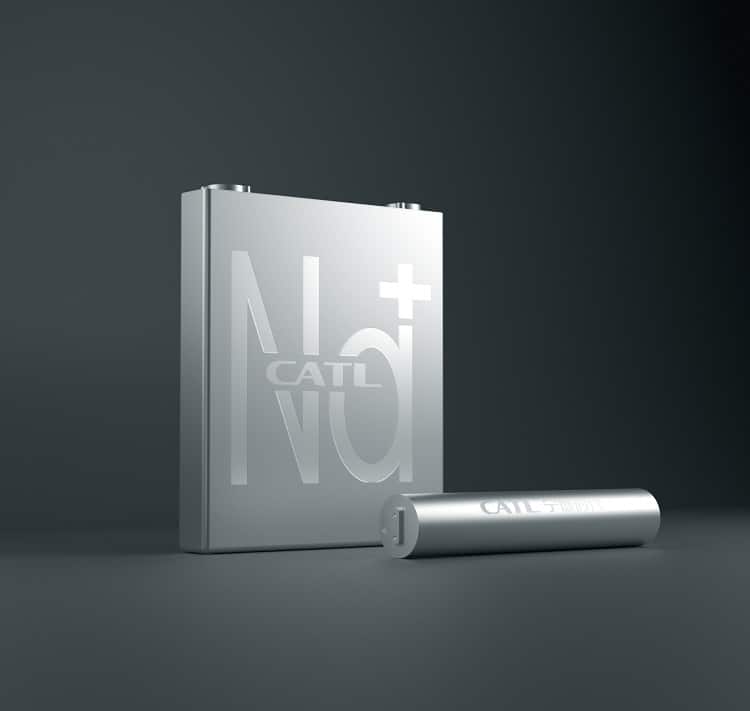
Lithium is expensive. I see lots of hype about sodium-ion or sodium-sulfur or other weird exotic batteries, but it seems like it never pans out.
Will any major EV manufacturer publicly offer a car with non-lithium batteries at any point before 2025?
Errata
Weird concept cars or numbered-limited-edition cars don't count.
But, if some weird-yet-standard variant does have a different battery, that does count (e.g. a country-specific model)
It should look and feel like a typical American car, i.e. not counting go-karts
Most of the drive power needs to come from the lithium-free component, but if there's some aux power that uses lithium I'll still allow it
Old battery tech (lead acid, nickel-whatever) doesn't count
Some random member of the public needs to be able to buy it and have a car delivered before 31 Dec 2024
Ask me to clarify in a comment before you trade on a weird edge case, I'll stick closer to the spirit of the question than to the letter
Close date updated to 2024-12-31 11:59 pm
@SanghyeonSeo A dated article that quotes carnewschina, and if you look for the carnewschina article:
https://carnewschina.com/2024/02/21/jac-yiwei-to-export-10000-evs-to-central-and-south-america/
"Update: The Daily Drive claimed the E10X Huaxianzi was equipped with a sodium-ion battery. However, CarNewsChina found that it is equipped with a standard LFP battery."
Yeah, on balance I think it's likely that these are still the lithium configuration.
https://jac.mx/e10x advertises the 2024 model with "Batería Litio ferrofosfato 31.4 kW/h" and Mexican car ads are listing "Capacity: 30.2", where the sodium configuration should have 23.2 kW-h by your link.
The criteria is still "a member of the public can buy it and take delivery" and I think this latest batch doesn't yet satisfy that regardless of configuration, though I would be surprised if none of them are sold before the cutoff.
@citrinitas There is a lack of authoritative source material. A lot of this is a combination of PR hype and poor reporting. Although it is hard to get the real data when the cars are not in consumer hands yet.
Yiwei starts shipping soon: https://www.electrive.com/2024/01/02/first-sodium-ion-battery-evs-go-into-serial-production-in-china/
Also:
https://cnevpost.com/2024/01/06/jac-yiwei-starts-delivering-evs-with-sodium-ion-batteries/
Note the 'lithium free'
JAC announced the first move to put the lithium-free sodium-ion battery on an electric vehicle.@MethodTarantula But, are we sure it doesn't have any other battery packs that are Lithium? I searched the manufacturer's site but it wasn't detailed enough. The cars I looked at previously had multiple battery packs, with a mix of battery packs (some sodium, some lithium).
@parhizj do you have a source for the mixed pack? I have seen no information that suggests this. The original question says 'most of the power must come from non-lithium'. Does this mean 51% sodium will work?
EDIT: I see where the mixed pack info is coming from; the CATL link below. However this link has no info on Yiwei and their supplier, HiNa.
@MethodTarantula Yeah, but I suppose the battery supplier doesn't matter as much as the specs from the vehicle manufacturer who is integrating the battery packs.
Yall should be aware of https://cnevpost.com/2022/11/30/byd-model-with-sodium-ion-batteries-q2-2023-report/
If they actually ship the sodium version of these cars, and there are no other major surprises / I'm not drastically misunderstanding this article, this market resolve YES
Apparently sodium is mainly filler since lithium is so expensive and sodium has poor charge density. It also apparently helps charging times since it has better thermal properties.
For the Chinese sodium-ion cars, I read the battery packs have cells with different chemistries mixed together in one battery pack. Since the battery pack has a mix of sodium and lithium (not pure sodium) I don't think this qualifies for this market:
"Both companies will mix lithium-ion and sodium-ion batteries under newly developed BMS in their new mass-produced batteries."
Given this I'm betting NO. It seems the trend is to refine the lithium battery tech with other technologies (like making them into solid state batteries) for the next few years to improve range and charge times.
https://carnewschina.com/2023/06/07/lei-xing-is-catls-sodium-ion-battery-ready-for-prime-time/
@parhizj Yeah, AFAICT the current lines are all sodium/lithium hybrid. Tech journalism has been putting out fluff pieces about full-sodium, and then the manufacturers just... don't do that.
YES buyer beware, Chinese car manufacturer publicity is all over the place.
Also note: it's not just CATL -- https://cnevpost.com/2023/02/23/hina-battery-puts-sodium-ion-batteries-in-sehol-e10x/
@EdAyers Yes to electric vehicle, no to hydrogen fuel cells. I'd say an approximate criteria is you need to be able to charge it with just electricity, probably using existing charging infrastructure

